- Naslovna
- B92
- Aleksandar Stojanović
- Aleksandar Vasović
- Aleksandra Mitrovic
- Ana Sofrenović
- Avram Goldmann
- Biljana Cincarević
- Biljana Srbljanović
- Božidar Đelić
- Bojana Maljević
- Branislav Kovačević Cole
- Čedomir Antić
- Đorđe Bobić
- Dejan Švajner
- Dejan Bizinger
- Dejan Restak
- Dejan Stanković
- Dule Nedeljković
- Everest 2007
- Gistro FM
- Goran Marković
- Goran Miletić
- Gordan Kičić
- Gorica Nešović
- Igor Brakus
- Ivana Konstantinović
- Ivan Marović
- Jasmina Tešanović
- Jelena Krajšić
- Jelena Milić
- Jelica Greganović
- Maja Kuruc
- Marčelo
- Marin Milosavljević
- Marko Vidojković
- Mića Marković
- Milan Lukić
- Milan M. Ćirković
- Milan Novković
- Milan Obradović
- Milica Đilas
- Miljenko Dereta
- Miloš Šaranović
- Mjehur
- Nebojša Milenković
- Nebojša Spaić
- Neven Anđelić
- Nikola Vitas
- Nune Popović
- Olga Medenica
- Olivera Vujnović
- Oto Oltvanji
- Queeria
- Rade Rakočević
- Radmila Hrnjak
- Radovan Nastić
- Ruža Ćirković
- Saša Radulović
- Sanja Perić
- Srđan Fuchs
- Srđan Kusovac
- Tamara Skrozza
- Tanja Jakobi
- Tatjana Momčilović
- Tena Štivičić
- Terorizam
- Veljko Popović
- Vesna Knežević Ćosić
- Vikipedija
- Vladan Aleksić
- World News
- Željka Buturović
- Željko Mirković
- Biografije
Lucy Moore
To Kosovo and back
Lucy Moore (28 Maj, 2007 - 12:39)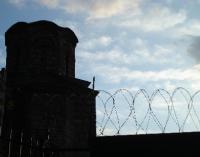 “Remember, if you get into trouble, just yell, ‘Živela Srbija.’ It’s better to go out with a bang,” a friend of mine remarked in jest as I left his apartment on my way to the station to catch a bus down to Kosovo. “I would tell you ‘lepo se provedi,’” his roommate added with a wink, “but I know you’re going to Priština.”
“Remember, if you get into trouble, just yell, ‘Živela Srbija.’ It’s better to go out with a bang,” a friend of mine remarked in jest as I left his apartment on my way to the station to catch a bus down to Kosovo. “I would tell you ‘lepo se provedi,’” his roommate added with a wink, “but I know you’re going to Priština.”
Quite honestly, I was nervous about the trip. Since my arrival last fall I had wanted to see the province I had heard so much about, and an Albanian friend in Priština had extended an open invitation, but the occasional reports over the last six months or so of bombed UN or OSCE vehicles troubled me a bit, as did the idea of my unnecessary American presence further complicating an already precarious situation. But when three American students called me to say they were heading down to Kosovo two weeks ago, I decided to join them.
» dalje | 2 komentara
Backwards or Brainwashed?
Lucy Moore (14 Maj, 2007 - 15:15)My roommate hates political correctness. Hates it. She says its unnatural, pointless, and, if anything, just serves as a status symbol in the unnecessary contest of who can be the most culturally sensitive.
“It’s like the word gypsy,” she said, trying to explain to me her distain for pc speak. “For a while everyone used gypsy, ‘Gypsy this and gypsy that.’ Then suddenly you can’t say gypsy any more, you have to say Roma. And if you say gypsy you’re a racist. Everyone looks at you like you’re terrible. But everyone is still saying the same things in the end.”
» dalje | 77 komentara
Beli Dvor
Lucy Moore (4 Maj, 2007 - 09:35)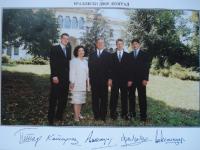 The Royal FamilyPerhaps it’s because I was raised in a country that prides itself on a foundation of long-severed monarchial ties, but I just don’t get the concept of a royal family. After all, what good are they really for other than filling the pages of tabloids and taking up desirable real estate in their respective capital cities?
The Royal FamilyPerhaps it’s because I was raised in a country that prides itself on a foundation of long-severed monarchial ties, but I just don’t get the concept of a royal family. After all, what good are they really for other than filling the pages of tabloids and taking up desirable real estate in their respective capital cities?
» dalje | 21 komentara
Guilt
Lucy Moore (11 April, 2007 - 10:57)I’m done with former-communist urbanism. I’m sick of it.
At least that’s what I decided after spending a day in Skopje last week. As I walked around town I couldn’t quite pinpoint what it was that I disliked so strongly. I had been warned that Skopje had more than its fair share of communist period architecture due to the 1963 earthquake that, in addition to killing over 1,000 people, destroyed much of the city, leaving room for a disproportionate number of the geometrically peculiar, concrete beauties that now dot urban landscapes throughout the former Yugoslavia. Despite the earthquake, Skopje’s riverbank is still dominated by the low roofs and cobblestone streets of the jumbled Turkish čaršija. But this discordant blend of concrete and cobblestone could also define the architectural style of Sarajevo or Novi Pazar, both towns I greatly enjoyed.
» dalje | 12 komentara
“Ancient ethnic hatreds”, Novi Pazar style
Lucy Moore (22 Mart, 2007 - 15:50)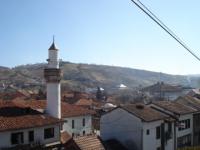 Novi PazarThat the Balkans is a land whose past cannot be distinguished from its present, whose history is an active and even dominant force in its current social and political climate, is a common cliché perpetuated by a good number of foreign journalists to the region.
Novi PazarThat the Balkans is a land whose past cannot be distinguished from its present, whose history is an active and even dominant force in its current social and political climate, is a common cliché perpetuated by a good number of foreign journalists to the region.
Take for example the widely read American travel writer Robert Kaplan. In his bestselling travel journal Balkan Ghosts, a book praised by the New York Times and read by Bill Clinton, Kaplan flecks his travel accounts with references to the region’s dark, bloody past, trumpeting the notion that the region will never be at peace because of the innate “ancient ethnic hatreds” of its people. He even goes so far as to inaccurately label the region the birthplace of nationalism. Calling Southern Serbia a “sanctum of dogma, mysticism, and savage beauty,” he writes that only there, “national life was lived. Only from here could it ever emerge.”
» dalje | 25 komentara
Is the only thing we have to fear really fear itself?
Lucy Moore (27 Februar, 2007 - 15:52)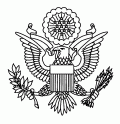 Warden NoticeThe US embassy should consider a job on the sly as event coordinator for Serbian nationalists. Every time the nationalists gather for a demonstration, the embassy sends me and every other American citizen in Serbia an email entitled "Warden Notice" informing us of the protest's date, time and location.
Warden NoticeThe US embassy should consider a job on the sly as event coordinator for Serbian nationalists. Every time the nationalists gather for a demonstration, the embassy sends me and every other American citizen in Serbia an email entitled "Warden Notice" informing us of the protest's date, time and location.
» dalje | 36 komentara
Visa Woes
Lucy Moore (14 Februar, 2007 - 13:14)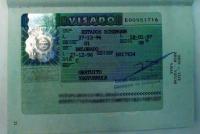 Perhaps because I am a foreigner, travel restrictions have emerged as a repeated theme in my conversations with the people I meet here. I’ve heard rants about the endless visa lines. I’ve listened to complaints about the limited number of countries worldwide that allow citizens of Serbia to enter without a visa. (Interestingly, I've been told that Andorra is one of that limited number, but may as well not be as it is has no airport and is therefore no more than a landlocked, visa-free island in a sea of Schengen neighbors.) And I’ve even fielded drunken marriage proposals on the premise that I, a key to a green card, could then take the “suitor” with me when I return to the States.
Perhaps because I am a foreigner, travel restrictions have emerged as a repeated theme in my conversations with the people I meet here. I’ve heard rants about the endless visa lines. I’ve listened to complaints about the limited number of countries worldwide that allow citizens of Serbia to enter without a visa. (Interestingly, I've been told that Andorra is one of that limited number, but may as well not be as it is has no airport and is therefore no more than a landlocked, visa-free island in a sea of Schengen neighbors.) And I’ve even fielded drunken marriage proposals on the premise that I, a key to a green card, could then take the “suitor” with me when I return to the States.
» dalje | 34 komentara
Proud to be an American?
Lucy Moore (6 Februar, 2007 - 12:29)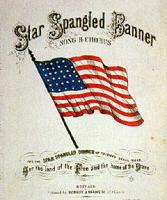 Sunday night, despite my Belgrade locale, I found myself audience to two separate performances of the American National Anthem: the first by Laibach at its SKC concert, and the second by Billy Joel, broadcasted live from the pinnacle of American sport culture - the Super Bowl.
Sunday night, despite my Belgrade locale, I found myself audience to two separate performances of the American National Anthem: the first by Laibach at its SKC concert, and the second by Billy Joel, broadcasted live from the pinnacle of American sport culture - the Super Bowl.
Needless to say, the two renditions could not have been more opposite. For over twenty years now Laibach has toed the anti-establishment line, while the Super Bowl, by definition, is a celebration of the establishment. Yet after viewing the two performances, I found that Billy Joel’s heartfelt, patriotic version, tweaked by CBS, did more to send home Laibach’s message than did any of the Slovenian band’s ominous warnings and sinister imagery.
» dalje | 31 komentara
My First Slava
Lucy Moore (23 Januar, 2007 - 13:42) St. JovanSaturday evening I found myself one step closer to "understanding Serbia": I attended my first slava.
St. JovanSaturday evening I found myself one step closer to "understanding Serbia": I attended my first slava.
When I first came to Belgrade, the whole slava thing was somewhat of a mystery. Every so often a friend would mention that he or she wouldn't be free that evening because of a slava, making reference only to the copious amounts of food and drink that would be consumed, and then would move on to the next topic at hand with no further explanation.
» dalje | 54 komentara
CNN Moments
Lucy Moore (16 Januar, 2007 - 13:52)Larry King Live goes to commercial, and a map of Europe appears on the television screen. The outline of Serbia glows red against the unmarked, gray continent. The frame zooms in on the small country, then cuts to images of monasteries, happy crowds of people, and low lit naturescapes. As the advertisement comes to an end, the audience is left with the parting slogan, "Serbia: Moments to Remember." This is one of Serbia's two new self-promotional commercials, which was aired for the first time last week on CNN and will continue to run for the next few months. (see Dejan Bizinger's last blog entry http://blog.b92.net/node/3746 for YouTube links).
» dalje | 23 komentara
A Long, Labeled Road
Lucy Moore (5 Januar, 2007 - 13:40)In hopes of avoiding the holiday blues that were almost guaranteed by spending December 25 (my Christmas) as though it was any other Monday in Belgrade, I headed off to Slovakia to visit a friend and her family for the holidays. Despite three days of family meals, spiced up by the surprising quantity of becherovka consumed by all generations in attendance, I managed to spend some time seeing Bratislava and Slovakia’s castle-filled, western region. As my friend and I strolled through the center of Bratislava, I commented on the freshly painted, colorful facades of the surrounding buildings and the excess of signs pointing the way to castles, churches, and famous birth places. “Eh, we’ve been European Unionized,” she said.
» dalje | 11 komentara
Belgrade: Off the Map, Off the Charts
Lucy Moore (15 Decembar, 2006 - 19:02)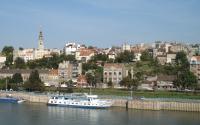
» dalje | 49 komentara
Fatherly Insight
Lucy Moore (7 Decembar, 2006 - 13:23)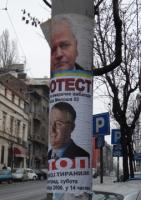 "Lucy, be careful. Those people can be dangerous." That was my father's reaction when I mentioned passing the Serbian Radical Party's demonstration held in honor of Vojslav Šešelj on my way into town Saturday. When I thought about the characters I saw as I wandered through the edge of the crowd gathered outside the US Embassy - a frail old woman, head covered in a scarf, cane in hand; a tacky, scantily clad twenty-something female dressed more for a nightclub than a political demonstration; and a young orthodox priest, swallowed by his flowing, black garb - I scoffed at this warning. Collectively these characters embodied the strange bedfellows represented by the Radical Party, but as individuals they each seemed more comical than threatening.
"Lucy, be careful. Those people can be dangerous." That was my father's reaction when I mentioned passing the Serbian Radical Party's demonstration held in honor of Vojslav Šešelj on my way into town Saturday. When I thought about the characters I saw as I wandered through the edge of the crowd gathered outside the US Embassy - a frail old woman, head covered in a scarf, cane in hand; a tacky, scantily clad twenty-something female dressed more for a nightclub than a political demonstration; and a young orthodox priest, swallowed by his flowing, black garb - I scoffed at this warning. Collectively these characters embodied the strange bedfellows represented by the Radical Party, but as individuals they each seemed more comical than threatening.
» dalje | 34 komentara
The Sequel is Never as Good as the Original
Lucy Moore (28 Novembar, 2006 - 14:06)Last week was the ten-year anniversary of the start of the student protests launched against Milošević's regime after it stole the 1996 municipal elections. For anyone living in Belgrade, these and other anti-war, anti-Milošević protests are a well-known part of Serbia’s recent history, yet they certainly came as a surprise to me when I first began to learn about the region.
As an American, and especially as an American too young to have followed the news coverage of Serbia in the 1990s, my general understanding of the situation was vaguely based on both the general story of “villainous Serbia” against “innocent Muslims” (a phrase much less common in America’s depiction of today’s world events) and the few depictions of the former Yugoslav wars in American popular culture. If you’ve ever seen Behind Enemy Lines - a film in which Owen Wilson is chased through mine fields and mass graves by sunken-eyed, heartless Serbian soldiers - then you know that the popular image of the Serbian people tends to be a bit more mindless and bloodthirsty than your average peace-loving protester.
» dalje | 8 komentara
What a Welcome Home
Lucy Moore (15 Novembar, 2006 - 13:29)Last week I took a break from Belgrade to visit a friend in London. Despite London’s beautiful old buildings and well-planned public transportation, I found myself missing Belgrade a bit—that is, until I board my return flight.
British Airway’s London to Belgrade flight left at 8:30am. After finding my seat I took out my book and began to alternate between reading and dozing, all the while trying to ignore the loud conversation going on between six or so Serbian men sitting around me. As soon at the first drink cart went by they started in with whiskies and vodkas despite the morning hour. Then the duty free cart came round, and I heard them ordering “one scotch, two vodka” this time upgrading from small plastic cups to full handles. With each new drink came more swearing and increasingly inappropriate passes at the blond sitting beside me. This rudeness was only highlighted by the contrast of the polite British stewardess who would pass through occasionally and calmly ask the men to take a seat so as not to block the aisle.
» dalje | 73 komentara





Najnoviji komentari
(1 godina 32 nedelje)
(1 godina 32 nedelje)
(1 godina 32 nedelje)
(1 godina 32 nedelje)
(1 godina 32 nedelje)
(1 godina 32 nedelje)
(1 godina 32 nedelje)
(1 godina 32 nedelje)
(1 godina 32 nedelje)
(1 godina 32 nedelje)